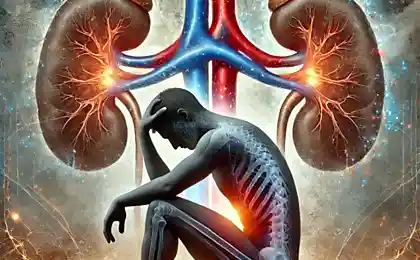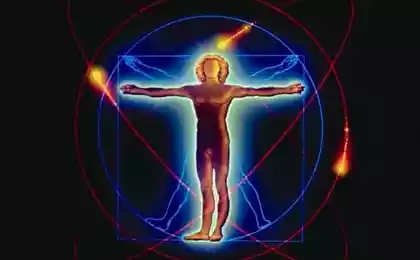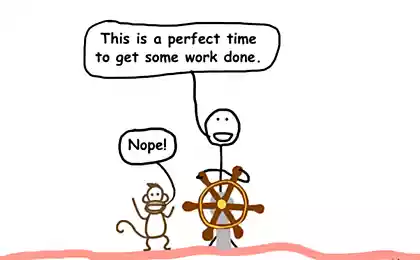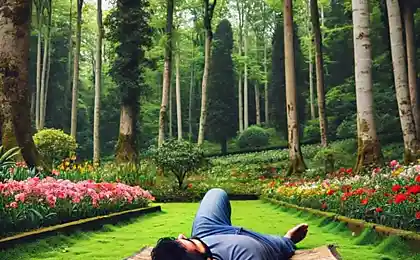564
How to beat fatigue
What have we not tired! From heavy physical work, emotional and/or mental stress, sleepless nights, out of boredom, monotony, uncertainty, of the need someone or something to control it...
Rarely do we get tired of one thing; as a rule, fatigue attacks from "all sides" and also has a tendency to accumulate. What should I do? The answer would seem obvious: tired — rest. But first you have to understand that we are tired and need rest, and that, on the contrary, craves activity.What is fatigue?
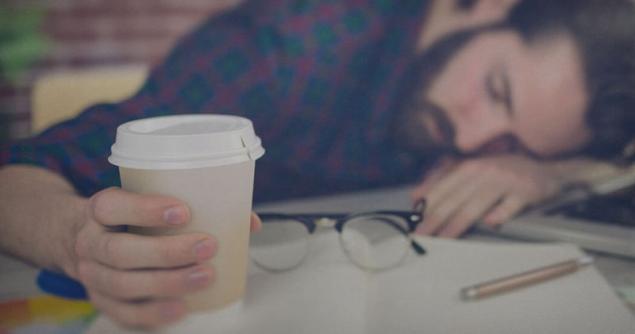
It turns out that we must distinguish between physical tiredness and fatigue.
Physical fatigue is a natural result of the depletion of energy as a result of long, continuous, hard work, tired body signal that it's time to relax, that is, to renew vitality and energy.
Unnatural, alarming is chronic fatigue. Its causes can be: disease — disruption (up to the complete breakdown of the resumption of vital energy; insufficient recovery time rest (repetitive strain); simply "wrong" holidays are not the time and out of place.
For the rest, only then can bring the desired recovery, when it is given to the authority by which it "earned" and really need it. In life it often happens that, feeling the mental and/or emotional fatigue, we "rest" at the TV, rooting them and already tired from inactivity of muscle and loading are really tired nervous system. And then are surprised that tired to rest!
Fatigue can be a result of physical fatigue, and have quite different causes. For example, the feeling of fatigue — a frequent companion monotonous, boring and unloved work (usually physically easy). On the other hand, extreme physical fatigue may not be accompanied by feeling of fatigue.
For example, when a person acts in the heat of passion (rage and anger) or willpower performs "impossible" to save the life of a loved one. The difference between physical and psychological fatigue was stressed by I. P. Pavlov: "the First — unpleasant, causing a feeling of heaviness, sluggishness, apathy; the second, despite the fact that sore overworked muscles, gives a sense of joy."
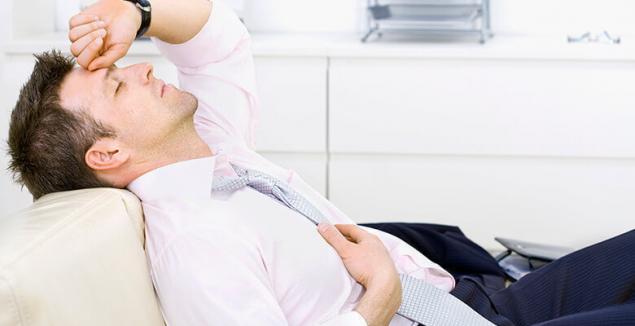
How they work, get tired and rest our muscles by reducing which happens all the variety of movements our physical bodies? At high loads, the muscles spend energy faster than you have time to recover and be able to "energy debt", leading to their fatigue.
If at this stage the muscle doesn't get enough rest, fatigue develops when the muscle can no longer respond with a reduction on any signals from the outside. But this overload to our muscles are rare.
More often, referring to the eternal fatigue and lack of time, we protect ourselves from muscle loads, minimize and modest physical activity ("tired of sit — 'll go lie down"). But... fatigue not only persists, but continues to accumulate.
After all, our tired inactivity of the muscles is very necessary let small, but regular active recreation. This exercise for the muscles at the same time will serve as a great relaxation for our tired nervous system. Scientists have shown that muscle strength, improves processes of regeneration of matter and energy not only in the muscles but also in many other organs and tissues (including the brain). So charging in the air — a great tool for "airing brains" — relieve mental and emotional tension.
The term active rest for our muscles suggested Russian physiologist I. M. Sechenov. He put in a simple and visual experiment; using the device of the ergograph were recorded:
1) curves of fatigue of the muscles of the left hand, doing the work (lifting the load);
2) the curves of the recovery of the hand during rest.
Recovery curves were filmed in two versions:
1) just relax and
2) active rest — while the rest of the left hand right worked (lifted load).
As a result, the restoration of a tired left hand was faster on the background of active work right.
The ancient teachings of the East and the West, saying that the matter is inherent in three States: movement, rest and rhythm of their rotation. Work and leisure — as the Yin and Yang — there are two sides of the same coin — life. Art of their harmonious combination and alternation can and should learn. To learn from Nature, from each other, from their own body.
The law of rhythm is a universal law of Nature. An example of its manifestation could be the change of seasons, the cycles of sleep and wakefulness, our own rhythms of our internal organs. It is very important not only to alternate work and leisure, but also to synchronize our rhythm with the rhythm of Nature: accordingly, working and relaxing in the most appropriate for this phase of natural cycles.
A simple example: day work, night — sleep. Sleep — an example of drastic change of activity. For our body is the most proven and effective way to renewed strength. But if during sleep our skeletal muscles relax, the heart continues to work. Because with every reduction in all parts of our body receive a fresh batch of blood, carrier restoration and rehabilitation. Heart muscle is reduced automatically (without mind control) under the action of impulses arising in the heart.
Cardiac muscle, unlike skeletal muscle, does not tire! But this does not mean that the heart never rests. The heart is an amazing example of following a constant, orderly and harmonious rhythm of alternating activity (phase reduction) and rest (relaxation phase). During the phase of relaxation in cardiac muscle, there are processes of replenishment of energy reserves expended during the preceding contraction.
Along the reduce phase and the relaxation phase amounts to one cardiac cycle. In one minute in most people's heart is this cycle from 60 to 80 times. The duration of one cycle in 0.8 s on average: a reduction of the Atria lasts 0.1 s, the contraction of the ventricles — 0.3, and the common pause of the heart is 0.4 s. it Turns out that during the day the heart is resting no less than 8 hours!
If you increase the heart rate time of each cycle decreases mainly at the expense of shortening the common pause of the heart. In trained people the heart beats slower, and therefore rest longer.
... Numerous examples tell us that fatigue can and should win. But does this mean that we once and for all overcome fatigue, and never will be? No. After all, the integrity and harmony — perfect condition, and the path to its attainment is long and arduous. And in this way we are not going to get tired and learn to regain strength again and again. And our little victory overcome will be our invaluable experience. Who knows, perhaps sooner or later, fatigue before it will not stand?
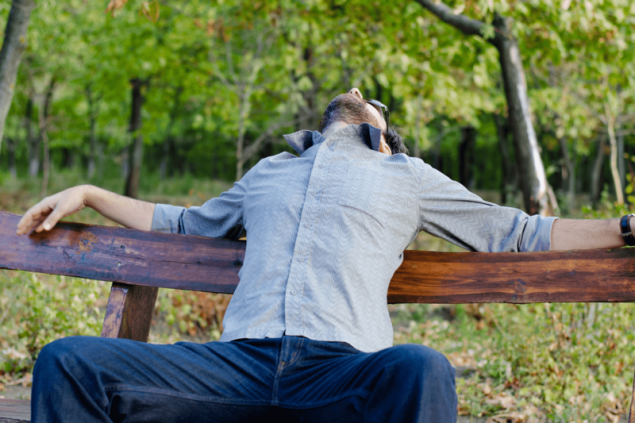
If you are tired (for example, to sit at the computer):
1. If the court of night — time sleep.
If you need to work, then:
2. Make simple exercises: pull out the spine (you can hang on the bar), massage the muscles of the neck area (the junction of the neck in the back), the edge of his hand "drank" neck.
3. Often get up from the table.
4. Pop out the open window.
5. Take a shower or at least wash your face with cold water. Drink water with lemon (dehydration speeds up the onset of fatigue).
6. If necessary, you can stimulate yourself coffee and tea. But remember that caffeine does not eliminate, but only muffles — masks fatigue. And those who uses it often, has a weak and transient effect, and in overdose causes the opposite effect — inhibition. The best Cup of coffee acts after a brief, but more complete relaxation (for example, 20 minutes of sleep).
7. If you love the work that you are tired of doing, then paragraphs 2 to 6 will help you.published
P. S. And remember, only by changing their consumption — together we change the world! ©
Join us in Facebook , Vkontakte, Odnoklassniki
Source: www.newacropolis.ru/magazines/1_2003/Esli_vy_uge_ustali/
Rarely do we get tired of one thing; as a rule, fatigue attacks from "all sides" and also has a tendency to accumulate. What should I do? The answer would seem obvious: tired — rest. But first you have to understand that we are tired and need rest, and that, on the contrary, craves activity.What is fatigue?

It turns out that we must distinguish between physical tiredness and fatigue.
Physical fatigue is a natural result of the depletion of energy as a result of long, continuous, hard work, tired body signal that it's time to relax, that is, to renew vitality and energy.
Unnatural, alarming is chronic fatigue. Its causes can be: disease — disruption (up to the complete breakdown of the resumption of vital energy; insufficient recovery time rest (repetitive strain); simply "wrong" holidays are not the time and out of place.
For the rest, only then can bring the desired recovery, when it is given to the authority by which it "earned" and really need it. In life it often happens that, feeling the mental and/or emotional fatigue, we "rest" at the TV, rooting them and already tired from inactivity of muscle and loading are really tired nervous system. And then are surprised that tired to rest!
Fatigue can be a result of physical fatigue, and have quite different causes. For example, the feeling of fatigue — a frequent companion monotonous, boring and unloved work (usually physically easy). On the other hand, extreme physical fatigue may not be accompanied by feeling of fatigue.
For example, when a person acts in the heat of passion (rage and anger) or willpower performs "impossible" to save the life of a loved one. The difference between physical and psychological fatigue was stressed by I. P. Pavlov: "the First — unpleasant, causing a feeling of heaviness, sluggishness, apathy; the second, despite the fact that sore overworked muscles, gives a sense of joy."

How they work, get tired and rest our muscles by reducing which happens all the variety of movements our physical bodies? At high loads, the muscles spend energy faster than you have time to recover and be able to "energy debt", leading to their fatigue.
If at this stage the muscle doesn't get enough rest, fatigue develops when the muscle can no longer respond with a reduction on any signals from the outside. But this overload to our muscles are rare.
More often, referring to the eternal fatigue and lack of time, we protect ourselves from muscle loads, minimize and modest physical activity ("tired of sit — 'll go lie down"). But... fatigue not only persists, but continues to accumulate.
After all, our tired inactivity of the muscles is very necessary let small, but regular active recreation. This exercise for the muscles at the same time will serve as a great relaxation for our tired nervous system. Scientists have shown that muscle strength, improves processes of regeneration of matter and energy not only in the muscles but also in many other organs and tissues (including the brain). So charging in the air — a great tool for "airing brains" — relieve mental and emotional tension.
The term active rest for our muscles suggested Russian physiologist I. M. Sechenov. He put in a simple and visual experiment; using the device of the ergograph were recorded:
1) curves of fatigue of the muscles of the left hand, doing the work (lifting the load);
2) the curves of the recovery of the hand during rest.
Recovery curves were filmed in two versions:
1) just relax and
2) active rest — while the rest of the left hand right worked (lifted load).
As a result, the restoration of a tired left hand was faster on the background of active work right.
The ancient teachings of the East and the West, saying that the matter is inherent in three States: movement, rest and rhythm of their rotation. Work and leisure — as the Yin and Yang — there are two sides of the same coin — life. Art of their harmonious combination and alternation can and should learn. To learn from Nature, from each other, from their own body.
The law of rhythm is a universal law of Nature. An example of its manifestation could be the change of seasons, the cycles of sleep and wakefulness, our own rhythms of our internal organs. It is very important not only to alternate work and leisure, but also to synchronize our rhythm with the rhythm of Nature: accordingly, working and relaxing in the most appropriate for this phase of natural cycles.
A simple example: day work, night — sleep. Sleep — an example of drastic change of activity. For our body is the most proven and effective way to renewed strength. But if during sleep our skeletal muscles relax, the heart continues to work. Because with every reduction in all parts of our body receive a fresh batch of blood, carrier restoration and rehabilitation. Heart muscle is reduced automatically (without mind control) under the action of impulses arising in the heart.
Cardiac muscle, unlike skeletal muscle, does not tire! But this does not mean that the heart never rests. The heart is an amazing example of following a constant, orderly and harmonious rhythm of alternating activity (phase reduction) and rest (relaxation phase). During the phase of relaxation in cardiac muscle, there are processes of replenishment of energy reserves expended during the preceding contraction.
Along the reduce phase and the relaxation phase amounts to one cardiac cycle. In one minute in most people's heart is this cycle from 60 to 80 times. The duration of one cycle in 0.8 s on average: a reduction of the Atria lasts 0.1 s, the contraction of the ventricles — 0.3, and the common pause of the heart is 0.4 s. it Turns out that during the day the heart is resting no less than 8 hours!
If you increase the heart rate time of each cycle decreases mainly at the expense of shortening the common pause of the heart. In trained people the heart beats slower, and therefore rest longer.
... Numerous examples tell us that fatigue can and should win. But does this mean that we once and for all overcome fatigue, and never will be? No. After all, the integrity and harmony — perfect condition, and the path to its attainment is long and arduous. And in this way we are not going to get tired and learn to regain strength again and again. And our little victory overcome will be our invaluable experience. Who knows, perhaps sooner or later, fatigue before it will not stand?

If you are tired (for example, to sit at the computer):
1. If the court of night — time sleep.
If you need to work, then:
2. Make simple exercises: pull out the spine (you can hang on the bar), massage the muscles of the neck area (the junction of the neck in the back), the edge of his hand "drank" neck.
3. Often get up from the table.
4. Pop out the open window.
5. Take a shower or at least wash your face with cold water. Drink water with lemon (dehydration speeds up the onset of fatigue).
6. If necessary, you can stimulate yourself coffee and tea. But remember that caffeine does not eliminate, but only muffles — masks fatigue. And those who uses it often, has a weak and transient effect, and in overdose causes the opposite effect — inhibition. The best Cup of coffee acts after a brief, but more complete relaxation (for example, 20 minutes of sleep).
7. If you love the work that you are tired of doing, then paragraphs 2 to 6 will help you.published
P. S. And remember, only by changing their consumption — together we change the world! ©
Join us in Facebook , Vkontakte, Odnoklassniki
Source: www.newacropolis.ru/magazines/1_2003/Esli_vy_uge_ustali/


